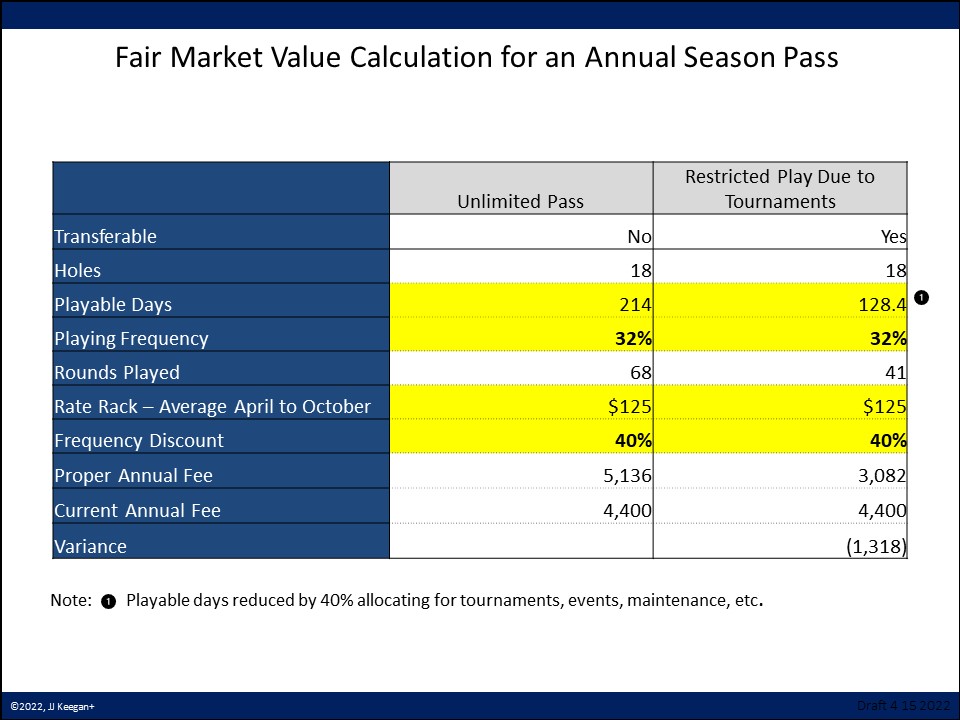
Suppose a golf course sells unlimited play season passes, unrestricted punch cards, and range passes for use between mid-April-October, does it have an ethical responsibility to ensure an adequate inventory of tee times for the customer to utilize?
This theoretical question is being debated currently in Colorado.
In June 2022, a local golf course will be closed for 12 days for tournaments, as shown below:
Because “non-pass holders” can book the course 8 to 30 days in advance, the available tee times for pass holders are highly constricted because the demand for the golf remains so strong. For example, the only tee time available for June 11 was for a single at 4 p.m. June 12 was sold out. As I write this blog on June 14, 100% of the tee times are sold for June 18 and 19.
Though there are 260 playable golf days, the facility is typically open 214 days from mid-April to mid-November. They sell in November for the forthcoming season a plethora of prepaid programs: unlimited season passes for $4,400, five-round purchase cards for $375, and a range pass for $900 that provide unlimited access to the range and a discount on green fees. The course does not disclose how many days it will be closed for tournaments, events, maintenance, etc.
The ”pre-sales” generates, it is estimated, over $250,000 in cash flow to cover salaries and expenses throughout the winter while the facility is closed.
While the prime-time green fee during the height of the summer is $155, the average premium rate throughout the year is $125. The reasonable value calculation of an unlimited play season pass is shown here:
A customer might believe that the course overcharged them $1,318 based on restricting available tee time for pass holder rounds. It should be noted with a 15% reduction in capacity; the season pass is fairly priced. Also, if a punch card holder does not utilize all their allotted rounds, they are able to exchange the unredeemed value for merchandise at full retail at the end of the golf season.
One might salute the General Manager. By selling a 144-person shotgun at 25% premium to the rack rate with food & beverage and merchandise packages available, he is maximizing the revenue for the facility. Further, he reduces staffing requirements from a 14-hour day to an 8-hour day. The owner, based on the profit generated, is likely thrilled.
But one ponders are they selling the “same tee time twice” – once to the individual golfer based on their anticipation of tee time availability and the same time to a group for an event. It raises the question – is this an ethical practice?
With season passes someone always loses. It is usually the golf course. The best financially performing golf courses eschew their use.
What do you think?

